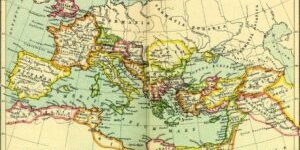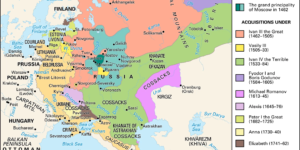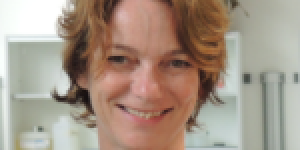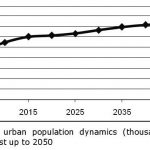The Vrije Universiteit And South Africa ~ A New Size Of Theology For A New South Africa
No Comments yet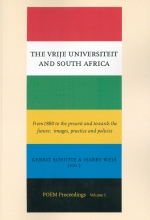 In Africa, religion is far more influential than in Europe. Although secularisation is increasing in South Africa, most people are still religious, and religion has a great impact on their lives and decisions. Building a new South African society without taking religion into account would be a serious omission.
In Africa, religion is far more influential than in Europe. Although secularisation is increasing in South Africa, most people are still religious, and religion has a great impact on their lives and decisions. Building a new South African society without taking religion into account would be a serious omission.
Theology is not the same as religion. Theology is a critical reflection on religious beliefs and attitudes and on the actions and decisions that result from these convictions. It is because of this critical function that theology has an extremely significant role to play in the new South Africa. Theology was an important part of the old South Africa as well, and because it did not fulfill its critical task then, it will have to play an even greater role now.
I see four main areas in which theology could be developed in South Africa. That does not mean (as will become clear below) that I support them all.
1. Theology of reassurance
A dominant aim of many theologians in present-day South Africa is to provide certainty for people that feel uneasy. This kind of theology is dominant within the Dutch Reformed Church (but not restricted to it). It is a theology that sustains people who have been feeling uncertain since the political changes. It is a modern form of the old-fashioned theology of providence: God will care for you. Amidst the tensions of society – crime, unemployment and worry for retirement funds – we find rest in the church. Theology can help to provide concepts of community building for those people who feel uneasy or to divert them from societal problems by focusing on traditional questions of individual faith. Religion can be helpful by keeping people calm – not only the labourers but also people who were usually dominant in the past and who are nowadays anxious. And theology, both in its modern shape of pastoral care and in its conservative form of focusing on a-contextual questions, can be supportive to shield people from shocking questions.
It is this type of theology that church leaders prefer if they want to keep things under control. And they are now in need for such a theology, because things run the risk of careening out of control as a result of differing views about the new South Africa.
This is an uncritical theology that will not contribute to the future. It has to be rejected, not only because it does not contribute to society building (it might seem to do so by keeping society stable in the short term), but also because it is insufficient. It hides the real problems. If a church leader attempts to conceal problems, at least a professional theologian should unmask this cloaking of the real questions. A striking example of this kind of theology can be found in the declaration about church unity that was accepted by the General Synod of the Dutch Reformed Church two weeks ago [October 2004]. They argue that the way is now open for a quick re-unification with the formerly black and brown churches. The first reason they give is: ‘Because we have a common history’. Obviously, there was nobody critical enough to raise the question: ‘What is this common history exactly? And should that history not be defined as a history of conflicts, of oppression and of suffering?’ So ‘in spite of a common history’ would be more befitting in this case. Much theological work still needs to be done before unity can be attained – helped by, at any rate, a different type of theology.
2. Societal theology
A more promising type of theology is executed by those theologians who explicitly want to contribute to society. The key word here is ‘public theology’. It deals with societal questions and with the question how religious beliefs and religious communities can contribute in overcoming the oppositions that divide people, such as white versus brown and black; dominant versus dependent; poor versus rich. Its aim is to contribute to a just and peaceful society. It can have different faces, such as a focus on discriminatory attitudes in church and society, on the development of outreach programs by churches, and on the empowerment of people from previously (and still!) disadvantaged communities. Their commonality is that they explicitly want to contribute to the development of the new society. In this kind of theology, researchers from all backgrounds work together (although we have to take into account that doing theology on an academic level in itself implies a specific place in society).
This theology is future-directed and deals with concrete issues. It is a theology of hope that fits very well into the atmosphere of hope that many people in South Africa are looking for. It especially accommodates the present administration that is striving for a prosperous South Africa that can function as a guide for the whole of Africa. It can be compared with mainstream protestant theology in the Netherlands in the fifties and sixties of the last century: after the war a new society had to be developed; a democratic and just society. It is a theology that is very much aware of challenges and obstacles; however, the people implementing it are convinced of their calling and, therefore, of the importance of their work.
3. A theology of reconciliation
Societal theology is so future-focused that it must be complemented by another type of theology: that of reconciliation. Although reconciliation is reached with respect to the future, it is first of all directed towards the past. Reconciliation is an essential part of present South African consciousness, due to the work of the Truth and Reconciliation Committee led by Bishop Desmond Tutu. It seems self-evident that in Christian theology (where reconciliation is also a core concept) this awareness in society would be fully exploited as a service to the nation and as a task for which it is specifically equipped. A tradition of thousands of years of reflection on reconciliation as a key concept might be a powerful contributor to a society that is so much in need of healing the past.
It is remarkable that theology’s contribution has been rather limited so far. Reconciliation is part of the debate, but it usually does not go beyond the limits of what is general in South African society. I think this is due to two factors. The first is that South African theology traditionally focused on God’s providence and not on reconciliation – and as far as reconciliation was discussed it was about individual reconciliation with God, not about reconciliation of people and even less of communities. So there is a lack in the South African theological tradition.
The second factor is that most people do not want to dwell too long in the past. The past has been there long enough. The past is past and we have to look towards the future. In this perspective, reconciliation is taken for granted too much. Once the mistakes are uttered you should not come back to them. We have to enter the future hand in hand. Reconciliation now consists of old enemies working together, while actually reconciliation can only be possible if we have a shared story (and, thus, story-telling) of the past, in which all events that have shaped our identity are integrated. That is a much longer road to travel.
4. A theology of criticism
In my opinion South Africa is most in need of a critical theology that is, on the one hand, sensitive to developments in society and, on the other hand, keeps a critical distance towards them. That distance should be a basic one, since theology is about God. The religious subject of theology should make it clear that God and earthly affairs cannot be confused – or, as we call it in our research program: religion without ulterior motive. True religion can never be instrumental and the core task of theology is to keep religion free from instrumentalisation. The tendency to use religion for other means is always present. The history of South Africa is a sound example of what happens when the two get confused. Apartheid used religion to ground its ideology. The aims of the administration were supported by theologians and they were the strongest ideologists. Similar claims, but with a different focus, were made by those who contested apartheid within the framework of a liberation theology. It is general practice in world history to use religion for political ends to provide one’s politics with an ideological base. And no ideology is indeed more powerful than religion.
South Africa is in need of a critical theology that unmasks new alliances of politics and religion, because alliances of that kind have been so disastrous in the past (even if they find themselves in a new perspective now.) This new perspective might be a pitfall, not only in South Africa but also all over the world, because it contains common sense.
This critical theology should not be exclusive. It must be closely related to the previous two types. In fact, they need each other. A public theology is in need of a critical, iconoclastic discourse, and a theology of the ultimate is always at risk to become abstract. It needs the concrete challenges of life in order to meet the standards. Both need a theology of reconciliation, because the past cannot be undone or neglected. How shall we deal with the past? This is the core question in any community in a time just after conflicts, suffering and guilt. Public theology is interested in the future as a reconciled reality. Critical theology is needed to avoid easy solutions that are in fact a source for new oppressions that confuse religion and ideology.
The cooperation between the faculty of Theology at the Vrije Universiteit and institutions in South Africa is focused on the interaction of the three latter theological perspectives, especially in the close relation between the Beyers Naudé Centre in Stellenbosch and the International Reformed Theological Institute in Amsterdam.
You May Also Like
Comments
Leave a Reply


